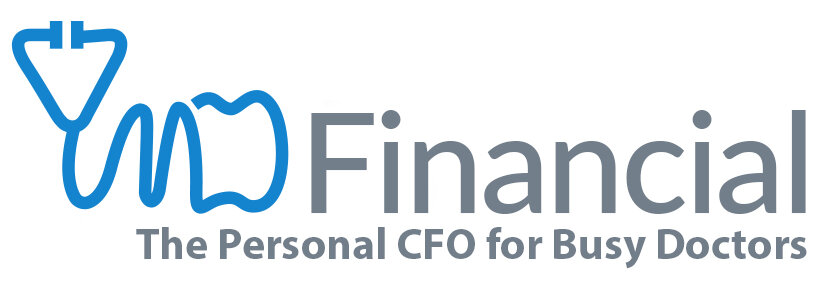Is buying a new home on your to-do list for this year? It can be an exciting and monumental task. So where do you begin? Today’s episode of “More Money Minutes for Doctors” will cover everything you need to know to get started, including: creating a budget, finding the right loan, and what actually adds value to a home.
First off, if you didn’t catch our previous episode on renting vs buying, you should go check that out. For a lot of doctors, renting is the right option for their situation. If you’ve already done the research and decided home buying is the right option for you, we have 4 steps to take before buying a home. Whether this is your first time buying or you are moving to a bigger home, you’ll want to follow these steps:
Step 1: Know Your Budget
The general “rule of thumb” is 2-3x your annual income assuming you have no student debt.
This is a good practice to use to avoid being “house poor”: spending too much of your income on housing costs and therefore being unable to afford wants and needs.
We always recommend putting together a budget, before anything else. You can’t know what loans to secure or what homes to look at before this step is done.
Don’t forget expenses like:
Homeowner’s Association (HOAs)
Furniture & Decorating
Maintenance & Repairs
Household Help
Internet
Utilities
Taxes
Lawn Service
Real Estate Taxes
Step 2: Find the Right Mortgage
Once you figure out how much mortgage you can afford, it’s time to find the right mortgage for you!
Due to the unique ratio of resident income to attending income, doctors can qualify for special mortgages or doctor loans. Many of these loans only require 5% down (some even require 0%) and these loans don’t require PMI.
What is PMI?
Private Mortgage Insurance - What lenders require if you are not able to put 20% down on a home purchase
Why do we think it’s better to put less down on a house?
Studies over the past 100+ years have shown that residential real estate only grew SLIGHTLY above inflation: 4%.
Whereas investing in the US stock market since the 1920’s has averaged 9-10% per year.
We also consider the liquidity aspect; if your money is tied up in your home and you need funds quickly, it’s a lot harder to turn a home into liquid assets compared to your retirement fund.
Fixed vs. variable rate loans
ARM (Adjustable Rate Mortgage)
These loans are usually a little cheaper in the beginning, then can increase over time.
15-year or 30-year loans
With interest rates so incredibly low right now, we are seeing an influx of clients refinancing their homes.
If you can afford a 15-year loan, you will be getting out of debt that much quicker! We really applaud the clients who have been able to do this.
Step 3: Find the Right House
Can you foresee being in the house for 5 years or more?
Is this a house that will allow your family to grow?
Are you considering having more children?
Consider what future improvements you might want/need
Certain improvements, like landscaping, typically don’t return on investment you make.
Improvements you may want:
Security system
Sprinkler system for the lawn
Kitchen remodel
Bathroom remodels
Consider talking to a local realtor, they can let you know which improvements will bring more value.
Step 4: Stick to Your Budget
You don’t have to furnish every room right away.
Buy consigned/used furniture.
If you have extra money in your budget, should you put it toward your principal or invest in your retirement plan?
Most of the time, we do not advise clients to pre-pay. As I discussed earlier: statistically home values don’t increase as fast as stock market retirement plans.
Home buying can be scary, but if you take these steps in the beginning, you can feel secure financially as you move into this monumental life change. Let us know if you’d like to have our team put together a home purchase budget with you or if you’d like a recommendation for a mortgage officer.
If you found this helpful, please forward it to colleagues and remember to follow us on social media. We’re always accepting questions/topics for future episodes of our podcast, so write in or call with your suggestions. Finally, you can reach out to us directly for a second opinion on your financial health, by emailing us at Info@mdfinancialadvisors.com.
Listen on Apple Podcast or Google Podcast
CONTACT US
1-888-256-6855
Katherine Vessenes, JD, CFP®, is the founder and CEO of MD Financial Advisors who serve 500 doctors from Hawaii to Cape Cod. An award-winning Financial Advisor, Attorney, Certified Financial Planner®, author and speaker, she is devoted to bringing ethical advice to physicians and dentists. She can be reached at Katherine@mdfinancialadvisors.com.

![4 Steps to Home Buying for Doctors [Podcast]](https://images.squarespace-cdn.com/content/v1/561feb4ee4b0de0eb30d6d3c/1611809920046-XMNGCUO843P57Z52ON7R/wynand-van-poortvliet-_jmagbo2dnk-unsplash.jpg)
